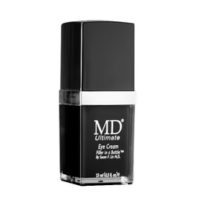The health of the skin surrounding the eyes is essential. Compared to the skin on the rest of our body, the skin surrounding our eyes is thinner and more sensitive, necessitating careful care to protect against numerous seasonal eye diseases and delay the signs of aging.
Typically, dark circles under the eyes are not a symptom of a health issue, and being fatigued is a common contributor to dark circles beneath the eyes. The shadows cast by swollen eyelids or hollows under your eyes that give the appearance of dark circles are simply a natural component of aging. Eye cream to reduce the dark circle is the best option, but it is essential to ensure the ingredients they include.
As the largest organ in the body, the skin requires special care if you want to stay healthy. The fragile skin around the eyes needs to be taken care of as part of good skin care.
For several reasons, proper skin care is crucial. For instance, your skin is a barrier to protect you from germs and infections, and you can avoid diseases like skin cancer with proper skin care. Additionally, taking good care of your skin may help delay the effects of aging, which is something that the majority of us desire.
Right Time to Take Care of Skin around the Eye
It’s never too early or late to show your eyes the love they deserve, regardless of age.
You’re not alone if it’s fine lines and wrinkles. As early as your 20s, fine wrinkles around the eyes might start to appear. This is because the tissue around the eyes is some of the thinnest on the body, possibly even thinner than five sheets of paper.
This skin is far more prone to damage brought on by heredity, intrinsic (natural) aging, physical characteristics, and normal wear and tear because of its thinness and absence of protective lipids.
Remember that a person’s lifestyle, allergies, illnesses, UV radiation exposure, and weather variations can affect how severe wrinkles around the eyes are.
Taking Care of the Skin Around Your Eyes
Your eye area’s skin is sensitive and prone to damage. Should do the following to protect the skin:
Use Sunscreen: Your eye area’s skin is prone to wrinkles and creases. Using sunscreen is one strategy to stop solar damage from developing. When going outside during the day, the American Academy of Dermatology advises sunscreen with an SPF of at least 30.
Prevent Infection: Eye infections can harm the eye’s surface and the skin around it. Wash your hands frequently to prevent infections, especially before touching your eyes. Never exchange eye makeup. Additionally, if you wear contact lenses, use them according to the manufacturer’s instructions.
Avoid Rubbing Eyes too Hard: We all occasionally rub our eyes. However, vigorously rubbing your eyes might damage sensitive skin. When you rub your eyes, be gentle.
Give Routine Massage to Yourself: A quick massage might help if you’ve noticed that your puffy eyes appear and disappear but are more noticeable when you’re fatigued or haven’t been getting enough sleep.
Fluid retention, in addition to a few hereditary components, can result in puffy eyes. This could result from a salty diet, little sleep, or excessive sleep.
You can improve the circulation of your eye by massaging under them. The pressure from the massage will reduce puffiness and drain extra fluid from this area.
Sleep Well: Sleeping more may also assist in lessening the visibility of dark circles. Your skin may look paler from lack of sleep, emphasizing the dark circles.
Eat Fruits & Vegetables: Vitamin E-rich foods aid in the battle against the enzymes that reduce skin suppleness. Free radicals, which contribute to wrinkles and aging, are fought by vitamin E.
Make Those Black Circles Disappear with These Straightforward Dietary Suggestions
Think twice if you believe that staying up late to watch your favorite show is the leading cause of the dark circles beneath your eyes. Though fatigue, worry, and lack of sleep frequently cause dark circles, your food is the main offender. Vitamin deficiencies in several areas frequently cause dark circles around your eyes. Avni Kaul, nutritionist, wellness coach, and creator of NutriActivania, discusses a few crucial nutrients that will help you defeat those stubborn dark circles to help you get rid of them.
Lycopene
A potent molecule called lycopene is present in many fruits and vegetables. It is well recognized that foods high in antioxidants can improve immunity and eye health, among other health benefits. Additionally, it aids in lowering pigmentation, which lessens the appearance of dark circles.
Vitamin K
Another miraculous ingredient that is great for your skin and hair is vitamin E. Additionally, it contains antioxidants, which help fight free radicals. Vitamin E is well known for helping to replenish moisture in your skin and also works to lessen pigmentation and slow down the aging process.
Vitamin C
Never underestimate the power of vitamin C. High in antioxidants, foods rich in vitamin C assists in minimizing the damage caused by exposure to free radicals. It also increases blood circulation and collagen production, thus helping restore the skin’s firmness and glow. Guava, strawberries, oranges, and cauliflower all contain vitamin C.
The Bottom Line
The skin surrounding your eyes is typically drier and more sensitive than the rest of your face. While it may be tempting to apply your regular facial moisturizer around your eyes, it’s ideal to choose an eye cream to get rid of eye circles or a gel that has been specifically formulated to delay the aging process and lessen the likelihood of irritation.

